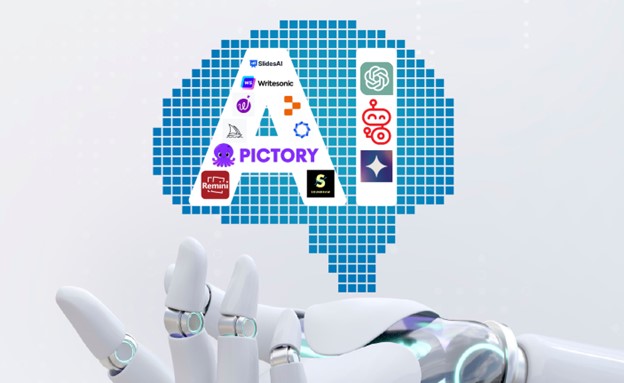Robotic Marketer Blog Posts from June 2023
Mastering the Art of Marketing for Your Robotics Company: Strategies for Success
The amount of robotics companies being launched today is at the highest level in history. Namely, because of the rise of artificial intelligence and machine learning. While many robotics companies are great at developing technology, they are not necessarily adept at developing a marketing ...
Unleashing the Power of AI: Top B2B Marketing Skills for CMOs
For B2B marketers staying ahead of the curve is crucial for high performing Chief Marketing Officers (CMOs) that seek to be at the top of their game. A recent B2B Marketing LinkedIn Report has shed light on the top and fastest-growing skills for CMOs, revealing an exciting shift towards digital ...
Top AI Marketing Strategy Tools Need to Replicate a Marketer’s Mindset
Introduction: Artificial Intelligence (AI) has revolutionized the marketing industry by providing powerful tools and technologies that can enhance efficiency, drive personalization, and optimize marketing strategies. However, for AI marketing tools to truly succeed, they must be designed to ...
AI Marketing Strategy: What They Don’t Teach You at Harvard
Marketing strategies are the backbone of every successful business. Traditionally, these strategies have relied on human expertise and intuition to identify target audiences, craft compelling messages, and drive customer engagement. However, with the rise of artificial intelligence (AI), a new ...
Top 12 AI tools for Marketers in 2023
Technology has been advancing speedily over the last decade, and AI has emerged as a game-changer for marketers. It is capable of assisting them with creating innovative strategies to connect with their audience, optimizing campaigns, and driving business growth. From intelligent chatbots ...
Driving Marketing Success: Unleashing the Power of Seamless Integrations
In today’s digital landscape, achieving marketing success requires leveraging the right tools and technologies. Seamless integrations play a crucial role in maximizing the potential of your marketing efforts. In this blog, we will explore the key benefits of integrating Robotic Marketer ...
How Marketing Agencies Can Boost Their Productivity with the Latest Tech Tools
In the dynamic and ever-evolving world of marketing, the quest for ideal technologies to supercharge productivity is an ongoing challenge for agencies. With a myriad of choices available, the key lies in navigating through the options and selecting technologies that align seamlessly with the ...
Maximising Your Marketing Success with Robotic Marketer: A Comprehensive Guide
A well-defined and strategically executed marketing plan is crucial for businesses to thrive, particularly in today’s uncertain market. With the help of Robotic Marketer, an AI-powered marketing strategy technology platform, you can now develop a comprehensive marketing strategy and ...










